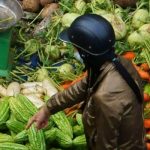Abstract: Food markets have been found to be, in many settings, important in shaping diets and nutritional outcomes. However, more evidence and improved metrics are needed to understand these relationships. This study examined relationships between foo... Source: IFPRI Malawi: Malawi Strategy Support Program
Virtual Event: Does Household Participation in Food Markets Increase Dietary Diversity? Evidence from Rural Malawi
Abstract: Food markets have been found to be, in many settings, important in shaping diets and nutritional outcomes. However, more evidence and improved metrics are needed to understand these relationships. This study examined relationships between foo... Source: IFPRI Malawi: Malawi Strategy Support Program
An approach to realize multiple benefits across water, energy, food, forests and biodiversity
The post An approach to realize multiple benefits across water, energy, food, forests and biodiversity appeared first on IFPRI South Asia Office.
Source: IFPRI South Asia Office
An approach to realize multiple benefits across water, energy, food, forests and biodiversity
The post An approach to realize multiple benefits across water, energy, food, forests and biodiversity appeared first on IFPRI South Asia Office.
Source: IFPRI South Asia Office
Affordability of the EAT–Lancet reference diet: a global analysis
New journal article by Kalle Hirvonen, Yan Bai, Derek Headey and William A Masters. Background: The EAT–Lancet Commission drew on all available nutritional and environmental evidence to construct the first global benchmark diet capable of sustaining health and protecting the planet, but it did not assess dietary affordability. We used food price and household income data […] Source: IFPRI Ethiopia: Ethiopia Strategy Support Program

